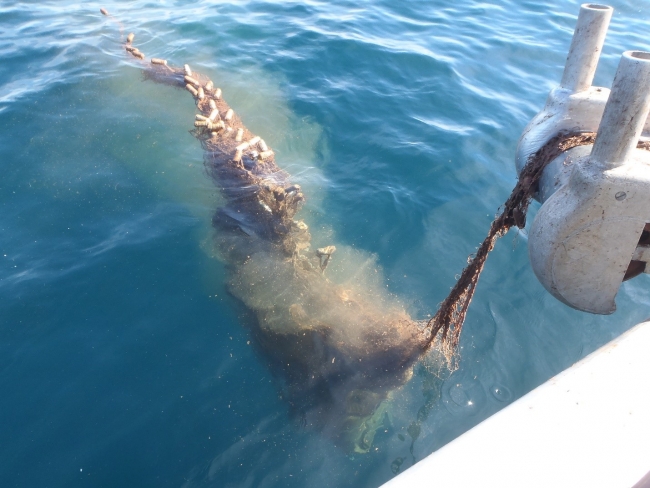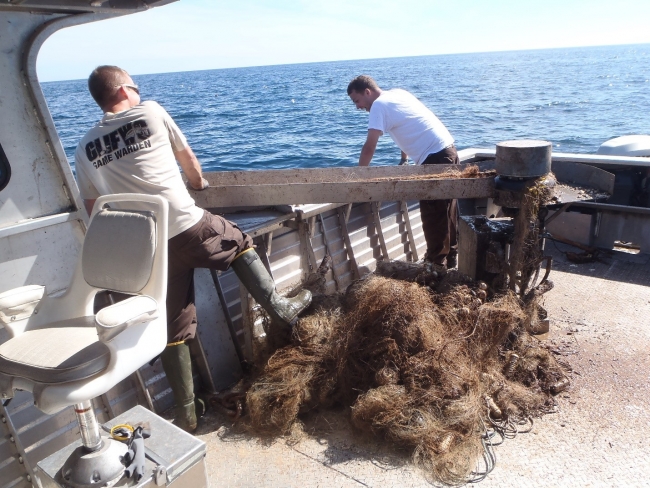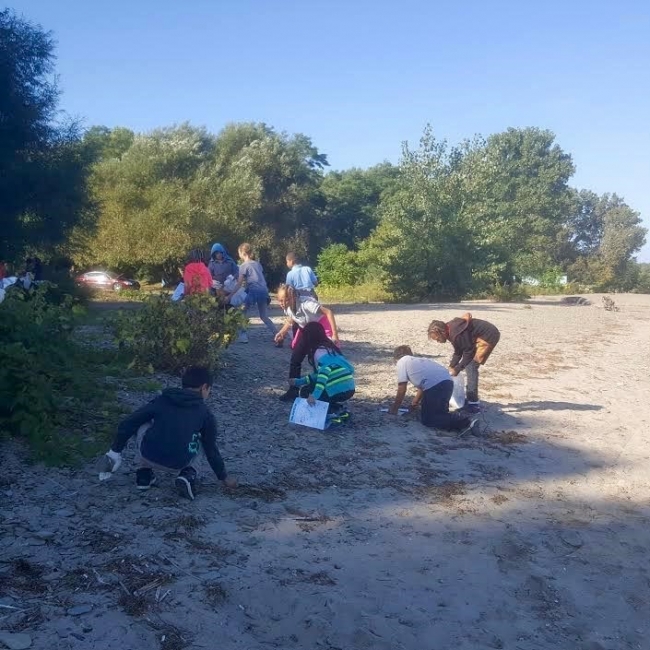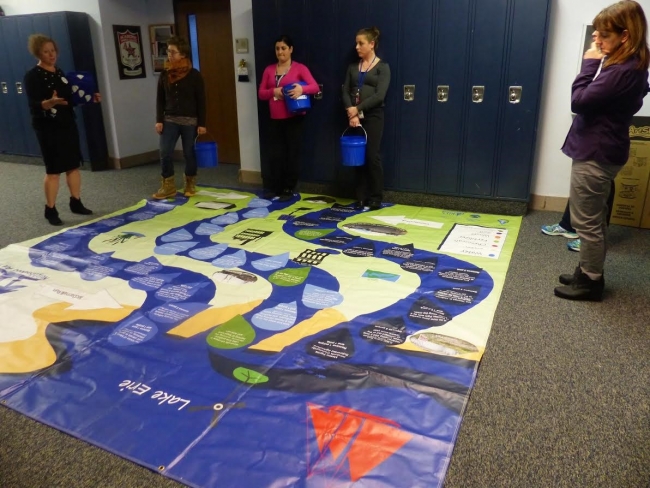Meet Sarah Lowe, the NOAA Marine Debris Program’s Great Lakes Regional Coordinator! After earning her B.S. and M.S. degrees in Biology from Bowling Green State University in Ohio, Sarah worked as a research technician on projects involving important Great Lakes issues such as invasive species community interactions and industrial and contaminant impacts to fisheries. In 2009, Sarah began working with the NOAA Marine Debris Program through the Knauss Sea Grant Fellowship, focusing on developing shoreline marine debris monitoring protocols. In 2010, Sarah moved into her current position as the Great Lakes Regional Coordinator, where she has worked to raise awareness about marine debris in the region and to lead the development of a Great Lakes Marine Debris Action Plan. Reach out to Sarah at sarah.lowe@noaa.gov!
The NOAA Marine Debris Program’s Great Lakes region is a large one, encompassing all Great Lakes states— from New York to Minnesota. This region has unique beauty with its complex system of habitats, ranging from the Lakes themselves to their associated wetlands, rivers, and tributaries. Unfortunately, this landscape is marred by the presence of marine debris. Like many places throughout the country, marine debris is a big problem in the Great Lakes region, impacting the environment and the animals that live there, as well as the Great Lakes’ robust recreational fishing and boating economy. Luckily, there are many efforts currently underway to tackle marine debris in this area. Check out some of the newly-established projects funded by the Marine Debris Program:
To address some of the derelict fishing gear that impacts the Great Lakes’ environment as well as the fishing and boating communities, the University of Wisconsin Sea Grant is working to remove derelict fishing nets (or “ghost nets”) in Lake Superior. These nets can create safety risks and so this project is working to develop a crowd-sourced ghost net removal program to reduce this threat. For more on this project, check out the project profile on our website.
While removing debris is unfortunately necessary, the ultimate solution to the problem is to prevent debris items from becoming marine debris in the first place. The School District of the City of Erie, Pennsylvania, is working to do just that by leading education and outreach efforts that reach students, teachers, and the community of Erie, PA. Through these efforts, they’re training teachers and educating students about marine debris, what type of trash is generated in their schools and neighborhoods, and helping students to develop strategies for reducing the amount of trash produced. For more on this project, check out the project profile on our website.
There are lots of cool things happening in the Great Lakes and considering this week marks 2017’s Great Lakes Day, we’re going to celebrate this region by highlighting some of it! Keep your eye on our blog this week for more, and check out our website for more interesting marine debris projects in the Great Lakes and throughout the country!





ANY STUDY TO REDUSE DEBRITS FROM STORM WATER DRAIN ENTERING SEE, LAKES ETC